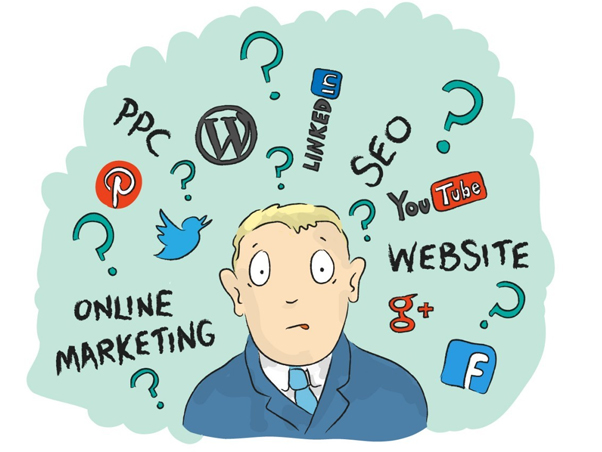Internet marketing is online
Internet Marketing
Today it is difficult to imagine a commercial project without a corresponding online promotion. To find customers, you need to convey your unique selling proposition to them. And well-built web marketing will help in this. Experienced businessmen have already appreciated his role in launching and scaling the project. It’s time to follow their lead. Internet marketing – what it is and what tasks to set for it – let’s figure it out.
Online marketing: its definition, goals and directions
Internet marketing is the online promotion of goods and services using special methods and tools. Its main task is to attract as many target customers as possible, ensure stable sales and predictable business development.
E-marketing usually involves a set of measures to promote a brand and its products online. Of course, the larger the project, the more marketing tools it can afford and the more serious the budget will be.
But even if initially you cannot allocate a large amount for marketing on the Internet, this does not mean that you should refuse it. Start with feasible investments and relatively inexpensive methods of promotion. And when you get the desired result and financial return, connect new types of marketing and watch how your business goes uphill.
Internet marketing comes in two forms:
complex web marketing, which includes online business promotion tools (corporate website, landing pages for attracting customers and collecting contacts, business groups in social networks, advertising on the Internet);
viral Internet marketing aimed at involving Internet users in promoting the brand and attracting customers (interesting content that you want to share, catchy advertising, word of mouth, exciting email newsletters, affiliate programs).
Often, both of these areas are closely intertwined within the same tool and complement each other.
Advertising
There are several types of advertising used on the Internet:
- Contextual advertising – its users see it when they enter certain key queries into the search. Typically, payment is made for clicks on an advertisement (transitions to a website, landing page, landing page).
- Targeted advertising – appears in social networks when scrolling the news feed; is configured for target user groups segmented by interests, gender, age, status, etc. Payment depends on the settings of the advertising campaign: you can pay for clicks on an ad, filling out a contact form, impressions, a specific action, such as downloading an application, ordering goods.
- Banner advertising is placed on special banners that can be located on the corporate website, partner resources, guest articles, etc.
- Native advertising is the organic inclusion of advertising in the content of the resource on which it is placed.
- Teaser ads are attention-grabbing ads with provocative headlines and intriguing offers that can be seen on websites.
Other types of advertising are advertising on YouTube, advertising in mail services, advertising from bloggers, advertising posts and stories in your own and partner business accounts.
Chatbot Marketing
The use of chatbots to automate sales and customer interactions is called chatbot marketing. Newsletters in chatbots can be informational and advertising. They can quickly answer standard customer questions, inform about current discounts and promotional offers, invite to webinars, live broadcasts and other company events, and, of course, sell.
Web Marketing: Business Benefits
If you are still not sure whether to use Internet marketing to promote your business, then analyze its advantages, namely:
- Wide coverage of the target audience – you can attract customers from any country in the world or reach interested users as much as possible within the location of your business.
- High efficiency – a variety of Internet marketing tools allows you to solve almost any marketing problem. Everything is easily integrated, collecting data about the client is not difficult, which allows you to build a seamless communication. Now this is especially true, as people spend more and more time online and increasingly prefer online shopping.
- Excellent informative content – with the help of online marketing tools, you can quickly and in detail demonstrate a product, tell all the important information about it without having to visit an offline store. In most cases, this allows you to persuade the client to make a purchase decision even at the stage of online acquaintance with the product/service.
- Global automation – most of the processes in Internet marketing can be automated, which will greatly simplify the work of marketers and allow them to focus on more important goals.
- Convenient audit of actions taken – track the effectiveness of posted content and SEO promotion, analyze advertising campaigns and mailing lists, create multi-level reports to refine your sales strategy.
- The ability to analyze the profitability – there are many metrics for calculating the profitability of marketing on the Internet, so it is almost always possible to reliably evaluate its effectiveness, unlike traditional advertising, where many indicators are very conditional.
- Prospective – buying online is simple and convenient, it saves the user’s personal time, especially since now online and offline sales can be combined using advanced tools.

With the help of Internet marketing tools, as well as a well-thought-out marketing strategy, you can effectively communicate with potential customers and form your selling messages as accurately as possible. In this case, the growth of conversions and sales is guaranteed.
